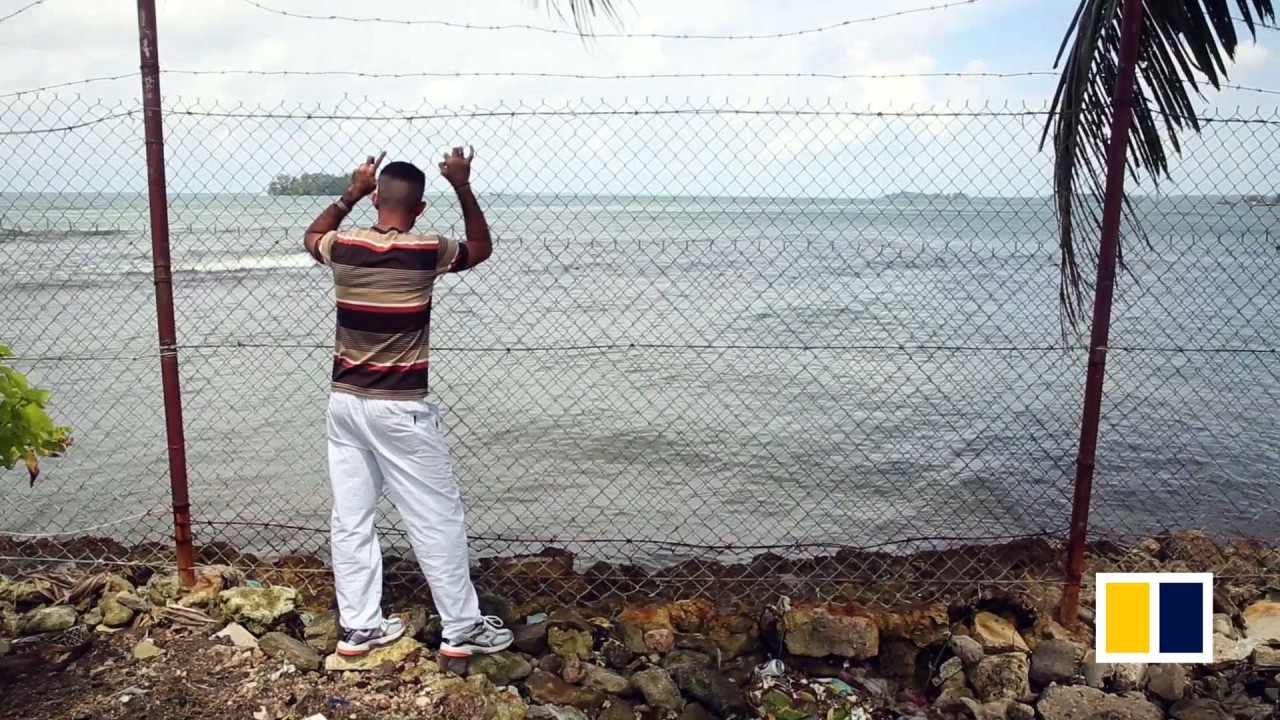
In Australia, a Sri Lankan refugee’s long ‘Walk for Freedom’ spotlights plight of persecuted asylum seekers
- Neil Para’s family fled civil war and have been trapped in Australia for nearly a decade after their visas were revoked without explanation
- He hopes his 1,000km trek will make an impact – but he faces an uphill battle when Canberra’s ‘harsh anti-asylum seeker policies’ remain a vote winner
Trapped in the country’s complex refugee processing system since his and his family’s bridging visas were revoked in 2014 without reason and never replaced, Para is walking to raise awareness of both his plight and that of thousands of other refugees.

“We are angry, frustrated, depressed and have a lot of mental health problems. We have so many feelings in [any] one day,” Para told This Week in Asia, adding that at one point the family had even collectively considered suicide.
Still, the 44-year-old is grateful not to be back in his home country.
“There may not be a war there now, but there’s a lot of racism and discrimination,” he said. “There is no stability.”
Para is using his 40-day “Walk for Freedom” from his home in the town of Ballarat, Victoria state, to Albanese’s constituency office in the Sydney suburb of Marrickville, New South Wales, to petition Canberra.
He’s collected more than 16,000 signatures since the walk began on August 1, with supporters joining him for sections of the journey to raise banners and cheer him on. His target is 25,000 signatures.

‘Cruel and deadly practice’
Australia’s navy intercepted the vessel and the Para family were first placed in a detention centre on Christmas Island, before being moved to Darwin and Dandenong, and eventually settling in Ballarat with bridging visas in 2013.
“Maybe refugees are powerful people who can decide who is [in] the government,” Para said sardonically. “And, if the government gives refugees visas, [they think] they may lose their power.”
Australia’s zero-tolerance approach toward refugees has led to a “legacy caseload” of thousands on temporary visas – or none at all – with few prospects of securing permanent permission to remain.
In the detention centre on Naura, some 3,000km off the Australian mainland – which was finally emptied in June but remains standing – the humanitarian organisation Medecins Sans Frontieres assessed the suffering as “some of the worst it had ever encountered, including in victims of torture”, according to a brief by Sydney’s Kaldor Centre for International Refugee Law.
In a statement, Australia’s Department of Home Affairs said refugees who aren’t invited to apply for permanent visas but think they merit one can ask for ministerial intervention.
And that’s just what Para has been doing – repeatedly calling the home affairs department and immigrant minister at regular intervals over the past decade.
The government hopes that people who have been rejected and forced to live as an underclass in Australia will ... return to their home countries
“Ultimately the government hopes that people who have been rejected and forced to live as an underclass in Australia will be forced to return to their home countries,” said Ian Rintoul, spokesman for the Refugee Action Coalition, adding that all the country’s major political parties see “harsh anti-asylum seeker policies” as an electoral advantage.
Fabia Claridge of the People Just Like Us advocacy group said a lack of political leadership had fed the narrative in many Australians’ minds of “any non-Anglo person on the bus” being a refugee “who will take their bus seat, job and a lot more”.
“Such lack of leadership is based on winning votes … it also sends a message to racist voters that the government is tough on non-whites, non-Christians,” she said.

Claridge’s NGO is one of many charity and community groups that supports Para and his family, helping to pay their rent, food, and other living expenses. Para currently volunteers with the state emergency services, but hopes to become a policeman, while his wife Sugaa volunteers at aged care facilities.
Margaret O’Donnell from Rural Australians for Refugees, a group of residents in Ballarat helping the family, said that at one point, the Para children were even confronted with the prospect of having to pay “foreign student fees” for attending school.
“[The family] put off seeing a doctor or a dentist when the rest of us do,” she said.
“[Once] I grizzled [moaned] about having to work a night shift and Neil replied, ‘at least you are allowed to work’,” O’Donnell added.
“I have heard it said many times from refugees that no one can walk in their shoes as it is impossible.”


